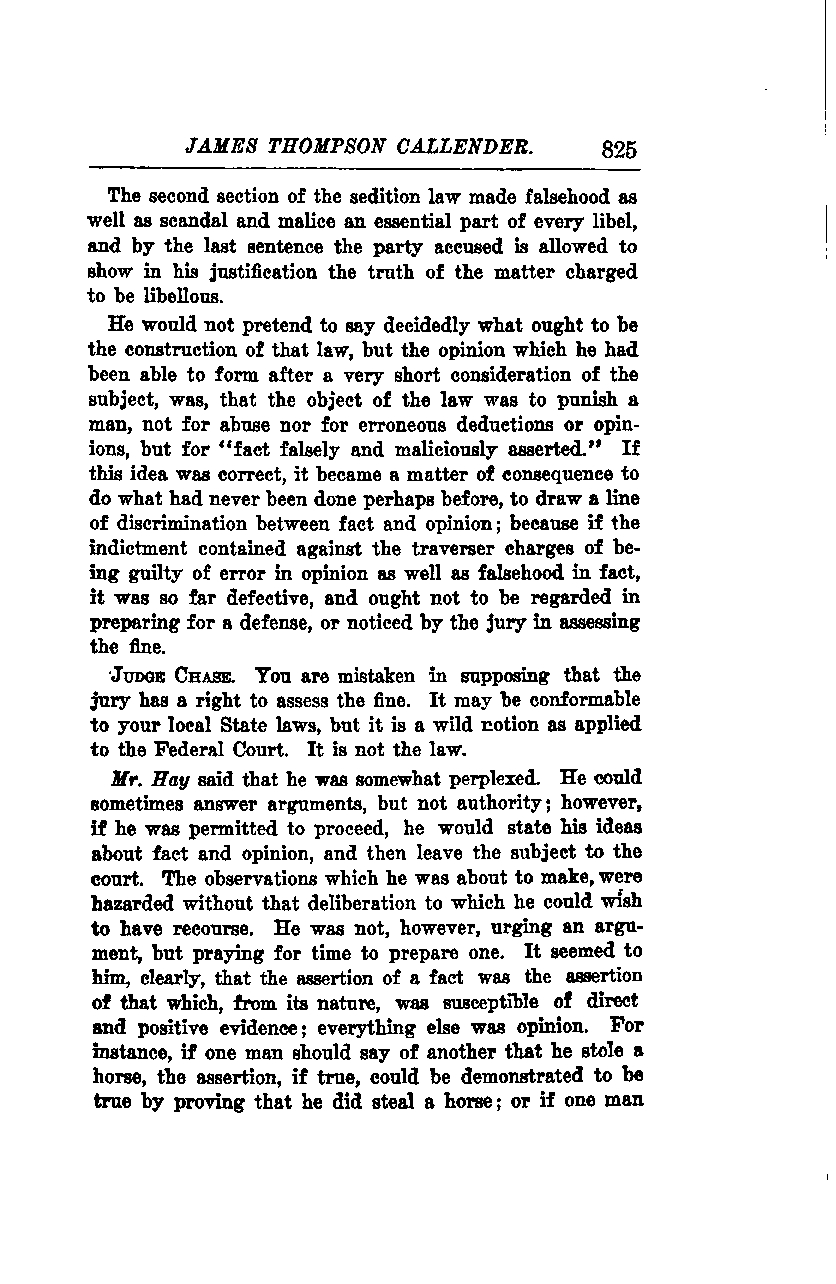
Here is the translated text as follows:
James Thompson Callender
The second section of the sedition law made falsehood, as well as scandal and malice, an essential part of every libel. By the last sentence, the party accused is allowed to show in his justification the truth of the matter charged to be libelous.
He would not pretend to say definitively what ought to be the construction of that law. However, the opinion he had been able to form after a very short consideration of the subject was that the object of the law was to punish a man not for abuse nor for erroneous deductions or opinions, but for "fact falsely and maliciously asserted." If this idea was correct, it became a matter of consequence to do what had perhaps never been done before: to draw a line of discrimination between fact and opinion. This is because if the indictment against the traverser contained charges of being guilty of error in opinion as well as falsehood in fact, it was so far defective and ought not to be regarded in preparing for a defense or noticed by the jury in assessing the fine.
Judge Chase: You are mistaken in supposing that the jury has a right to assess the fine. It may be conformable to your local state laws, but it is a wild notion as applied to the Federal Court. It is not the law.
Mr. Hay said that he was somewhat perplexed. He could sometimes answer arguments, but not authority. However, if he was permitted to proceed, he would state his ideas about fact and opinion and then leave the subject to the court. The observations he was about to make were hazarded without the deliberation to which he could wish to have recourse. He was not, however, urging an argument but praying for time to prepare one. It seemed to him, clearly, that the assertion of a fact was the assertion of that which, from its nature, was susceptible to direct and positive evidence; everything else was opinion. For instance, if one man should say of another that he stole a horse, the assertion, if true, could be demonstrated to be true by proving that he did steal a horse.
---
I hope this helps!